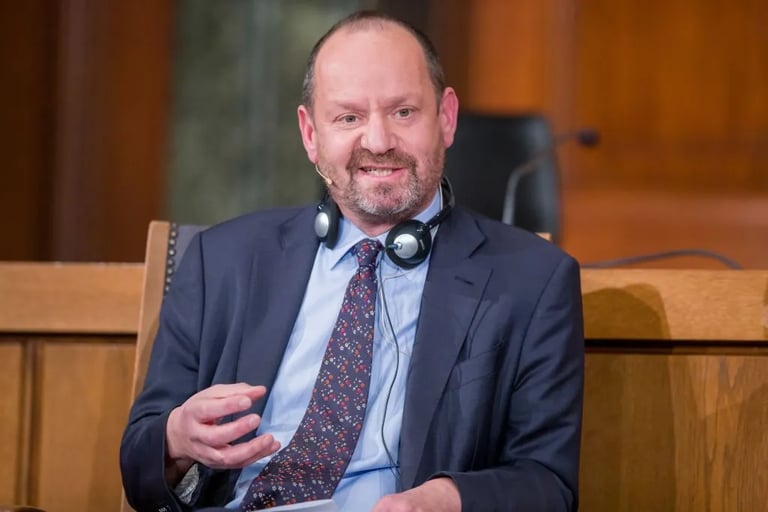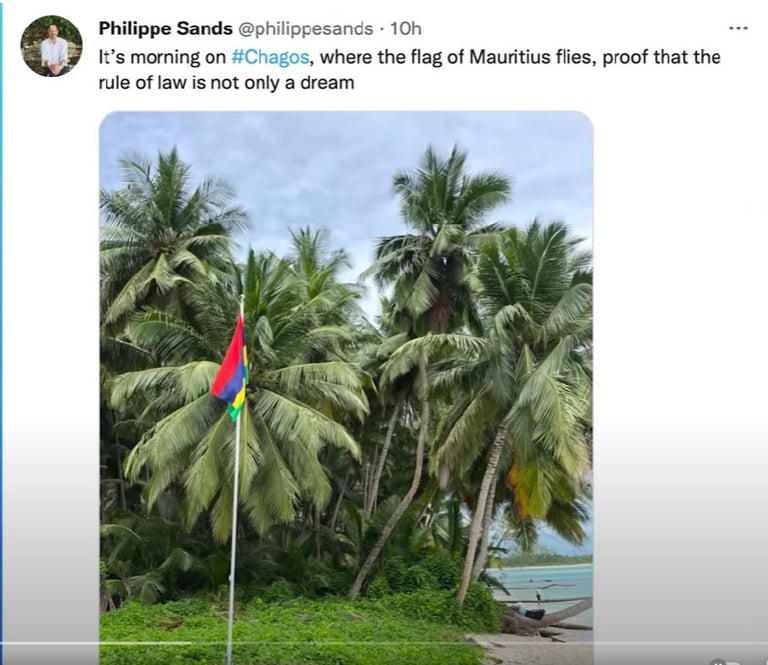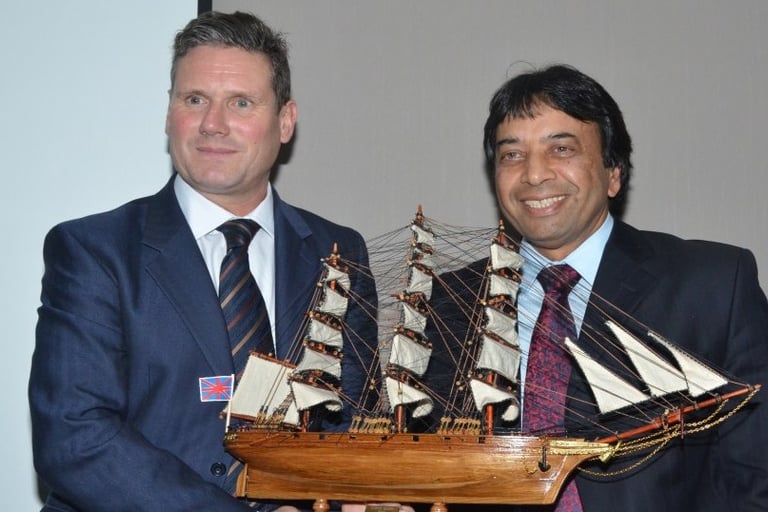The Chagos Controversy: Keir Starmer, Philippe Sands, and the Question of Sovereignty
At the heart of the matter is Philippe Sands KC, an international lawyer and close confidant of Prime Minister Sir Keir Starmer, who has played a pivotal role in advocating for Mauritius’ unfounded claim to the islands.
NEWS FROM THE OVERSEAS TERRITORIESOPINIONBRITISH INDIAN OCEAN TERRITORY
The ongoing debate surrounding the Chagos Islands has taken a dramatic turn, with Labour’s controversial deal to cede the British Indian Ocean Territory (BIOT) to Mauritius drawing increasing scrutiny. At the heart of the matter is Philippe Sands KC, an international lawyer and close confidant of Prime Minister Sir Keir Starmer, who has played a pivotal role in advocating for Mauritius’ unfounded claim to the islands. Sands’ involvement in the legal arguments, his unauthorised entry into the archipelago, and Starmer’s past ties to Mauritius have raised serious questions about the motivations behind the deal.
Philippe Sands: Advisor or Advocate for a Foreign Power?
Philippe Sands, an international lawyer with a long history of representing Mauritius in its legal battle against the UK over the Chagos Islands, has emerged as a key figure in the decision to transfer sovereignty. Despite his legal representation of Mauritius, Sands remains a trusted ally of Starmer, describing him as “generous, humorous, and empathetic.”
In 2023, Sands outlined a legal argument in The International Legal Order in the 21st Century, stating that the International Telecommunication Union (ITU), a United Nations agency, could rule that UK-US telecommunications operations in Chagos are unlawful. This very same argument has now been used by Starmer’s government to justify the controversial deal, claiming that without an agreement with Mauritius, the future operation of the Diego Garcia military base would be at risk.
However, such a claim is laughable, and demonstrates a weak pretext for what is essentially a political move to avoid legal battles in international courts. A former official involved in the negotiations has argued that the government’s real concern is optics, not national security. “The Foreign Office is worried that it would make us look bad if we lost the case and tried to keep the territory,” they said. “They are trying to find a rationale for why they are giving £9 billion away.”
This revelation raises a critical question: why is the UK government relying on an argument first put forward by Sands, who has consistently fought against British sovereignty in the region? The close relationship between Sands and Starmer has fueled suspicions that personal ties and political convenience, rather than genuine national security concerns, are driving Labour’s rush to cede the Chagos Islands.


Philippe Sands KC
An Illegal Entry and the Raising of the Mauritius Flag
Sands’ role in this controversy does not end with his legal arguments. In 2022, he made an unauthorised entry into the British Indian Ocean Territory alongside Mauritian officials, Chagossians, and journalists. Once there, he participated in the hoisting of the Mauritius flag over UK-administered land. The act, which was in direct violation of British entry regulations, was later celebrated in a tweet by Sands, where he declared, “It’s morning on Chagos, where the flag of Mauritius flies, proving that the rule of law is not only a dream.”
While the tweet was later deleted, a record of it remains in a propaganda video published by Chinese state-owned China Daily. Sands’ participation in this unauthorised action underscores his firm allegiance to Mauritius’ claim, despite his advisory role in British governance, and demonstrates his commitment to the rule of law is not as firm as he would like you to believe.
This incident has led to further questions about Starmer’s judgment in placing trust in Sands. If a close ally of the Prime Minister is willing to illegally enter British territory and symbolically assert Mauritian control, can he truly be regarded as an impartial legal expert? Or is Sands acting as a de facto agent of a foreign power while maintaining access to the UK’s highest levels of government?


Philippe Sands KC's tweet on raising the Mauritian flag
Starmer’s Mauritius Connection
The final piece of the puzzle is Starmer’s personal history with Mauritius. Before entering politics, he was invited to a high-profile legal conference in 2013, hosted by the Mauritius Bar Association at the five-star InterContinental Balaclava resort. While there, he delivered a keynote speech and was honored with a wooden model of a warship.
More notably, Starmer used the visit as an opportunity to engage in discussions on the Chagos issue with Mauritian legal and political figures. He met with then-Prime Minister Navin Ramgoolam, who is now leading Mauritius’ negotiations over the islands and is back as Prime Minister. Ramgoolam later recalled their 2013 meeting as a moment of shared values and mutual understanding. Another prominent Mauritian lawyer and friend of Starmer, Satyajit Boolell, has stated that he “cleared things up” for him regarding the Chagos issue.
This trip, which took place just a year before Starmer was selected as the Labour candidate for Holborn and St Pancras, has led to speculation about whether his stance on Chagos was shaped by his connections to Mauritius long before he entered frontline politics. The optics of the situation are troubling: a future Prime Minister, wined and dined at a luxury beach resort, engaging in discussions about sovereignty with the very leaders now benefiting from his decision to cede British territory.


Keir Starmer receives a wooden ship model on a visit to Mauritius
Conclusion
The Chagos deal, already controversial for its £9-18 billion price tag, has been further clouded by the involvement of Philippe Sands. His dual role as a legal advocate for Mauritius and a trusted figure in Starmer’s circle raises major concerns. His unauthorised visit to the islands and participation in a flag-raising stunt only deepen suspicions about where his loyalties truly lie. Meanwhile, Starmer’s past interactions with Mauritian elites suggest that his position on Chagos may have been influenced long before he stepped into Downing Street.
The UK’s surrender of Chagos is not merely a legal technicality or an effort to maintain diplomatic relations - it is a decision that affects national security, taxpayer funds, the Chagossian community, and the future of British sovereignty. The extent to which personal friendships, foreign lobbying, and questionable legal advice have influenced this deal is a matter of growing concern, and one that deserves full parliamentary scrutiny.
